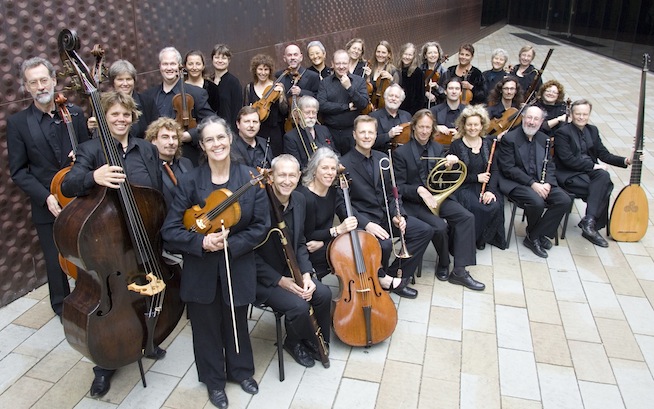
The young Rossini
It’s hard to imagine these teenage geniuses dashing out their wonderful first pieces. It’s the later works, after their talents and skills come to complete fruition, that become the savored and celebrated works of most composers. But listening to early pieces is always a revelation – the foundations and the style are discernible – and often a delight. The mischievousness of youth is apparent in more spontaneous, though perhaps less cultivated, ways.
Philharmonia Baroque’s performance of Rossini’s La cambiale di matrimonio (The Marriage Contract) showed all of that in spades. Written when Rossini was a mere babe of 18 years, the sparkling one-act opera shows all the humor and much of the musical flamboyance of this master of bel canto opera.
The opera, based on the 1791 play by Italian dramatist and actor Camillo Federici, tells the story of Fannì, a young woman whose father arranges a mail-order marriage for her with a wealthy American who has the peculiar name of Slook. She, of course, has other plans in the shape of Edoardo, her impoverished but worthy young swain. Sound familiar? Yep. But that doesn’t make it any less enjoyable. Especially so when the roles are sung by a cast of vibrant and talented Adler fellows.
Soprano Jaqueline Piccolino (Fannì) has lots of punch behind that sweet voice and her clarity was well matched with Brian Thorsett’s equally sweet and full tenor. I’m always taken aback by Thorsett’s yummy tenor, which is less bright than many tenors but more velvety. Basses Matthew Stump and Anthony Reed (Fannì’s father Tobia Mill and the servant Norton) acquitted themselves handsomely with comic élan and enough reserve to portray a calculating English merchant and his skeptical servant. And mezzo Nian Wang was the frazzled maid.
The walkaway brilliant portrayal was baritone Efraín Solís as Slook, the good-natured but clumsy American in oversized fur coat and slouch hat. Was he wearing cowboy boots? Surely figurative, if not literal ones. Smitten by Fannì’s beauty, he’s ready to head for the high hills when threatened by the lovers with having his eyes gouged out if he pursues his marriage contract for Tobia Mill’s daughter. A laugh at the straightforward mercantilism of Americans with too much cash, Slook is nonetheless a generous dealer who recognizes he’s no match for the “stuck-up” Europeans. Solís, perhaps more than the other singers, seemed to delight in the ornamentation that was to become a feature of Rossini’s compositions.
It’s surprising how well these 19th-century stereotypes in collision with the left-over conventions of commedia dell’arte maintain not only their freshness but also their grains of truth about human behavior. La cambiale di matrimonio falls under the category of farsa, a Venetian form of comic opera from the 18th and 19th centuries, which is distinguished from other comic opera by its condensed structure.
Which brings us back to the exceptional Philharmonia Baroque, which plays on period instruments, original and replicas. There was for example, the wonderful wooden transverse flute. And the horns! The orchestra was tuned to A430, a shade under current orchestral tuning but not as low as Baroque tuning.
And a little Mozart music
The first half of the program featured five short pieces by Mozart, including “Con vezzo all’italiano”, Nardo’s satiric aria from the early opera, La finta giardiniera, sung by baritone Edward Nelson. Another teenage accomplishment by the then very experienced Mozart, it is one of the more amusing portrayals of how different cultures perform their wooing. Soprano Julie Adams sang a lovely version of “Nehmt meinen Dank”. Of striking interest was “Per questa bella mano” sung by bass Anthony Reed, accompanied by Kristin Zoernig on a 17th-century double bass, with a remarkably husky sound. Also among the instrumentalists, R. J. Kelley’s playing on a mid 19th-century horn was to die for.
– Jaime Robles
Photo of the Philharmonia Baroque Orchestra by Randi Beach.
